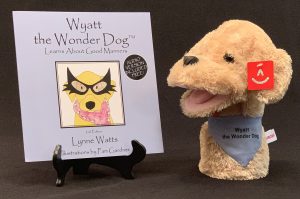Teach kids to get better at getting along
Teach kids to get along together
You’ve got two kids who disagree and fight constantly…
Yet they seem attracted to each other like magnets…
You’ve talked to them
You’ve threatened them
You’ve separated them… repeatedly.
What’s the answer?
We’ve all been in this situation as educators and parents; two kids who just can’t get along but who somehow manage to always wind up together and arguing no matter what you do. I recently responded to a question much like this on the ASCA forum from a school counselor who was at her wits end with a similar situation. Here was my answer:
Helping Kids Learn to Get Along
I’m going to suggest something that is probably counter intuitive and outside the box. However, I have found that when you try to enforce a separation strategy, it takes a great deal of energy and the students challenge the boundaries at every possible chance. It is much like trying to fight the resistance of two magnets. There is a better strategy. Yes, it involves a good bit of time but it is all designed to not only prevent future disagreements, but teach the kids involved how to handle any disagreement in the future. Clearly they need that kind of training. Plus… you are spending a ton of time trying to keep them apart and putting out fires anyway. Why not invest the time in teaching new skills?
Here’s the plan:
Re-frame the problem as two friends who want to enjoy each other but don’t know how to resolve conflicts. I would perhaps use the analogy of two carpenters who are trying to build something but who show up for the job with the wrong tools. They need a hammer and nails and instead they brought a chain saw and a screwdriver so what they try to build results in a lot of frustration. You are going to teach them the right tools for building a friendship.
Begin with a commitment from each of them to do the work necessary to improve their friendship. Then back track with them to their latest incident. What started the conflict? Who said and did what? Write it down as though it was a role-play… you could even have them act it out while you write it down, stopping them after each statement. (Pausing should keep emotions low).
Create a list of conflict rules: No name calling. No blaming. No yelling. Think before you speak. Treat others as you would like to be treated… etc.
Develop a new dialogue: Now working with the students at each point in the latest conflict, have them suggest what they could have said that would have followed the rules and built rather than damaged the relationship. Have them act it out and describe how they feel at the end.
Anticipate the future: Have the students brainstorm situations that could create problems again. Review things they can say and do to prevent problems. Have them practice and role-play the situations so they are prepared.
Follow up: Check back on a regular basis to mediate any problems, reinforce what they have learned and encourage them to continue good practices. Review the rules and repeat the role-playing of situations as necessary until they learn better habits and strategies. Congratulate them on taking the time to learn to be great friends. Once they are successful ask them to help others who are having friendship conflicts and teach them what they have learned.

Wyatt Learns about Good Manners
Wyatt is always wondering about something and lately it is how to get his friend, Max to change his bossy ways. What can he do? Join Wyatt as he considers some rather unusual options until he finally discovers that a heart to heart talk with Max can create a new friendship with an old friend.
Have you ever had a friend that did some things that you disagreed with? Wyatt does and he doesn’t know what to do about it. Join Wyatt as he learns that being honest with his friend is the best and only way to solve the problem. A great story! ~Lynn Hughes M.Ed. professional school counselor, Ball Ground Elementary
